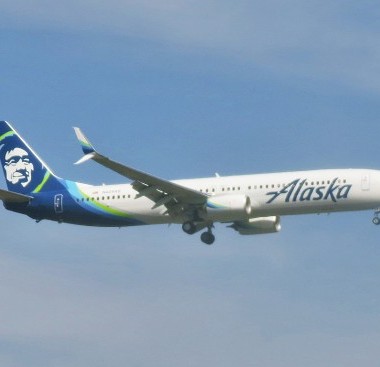Azul CEO says Brazil aid to airlines key as fuel debacle rages
A $1.2 billion credit line from the government expected as soon as this month will be key for Brazil’s troubled airlines as they lobby for lower jet fuel costs and for help clamping down on passenger litigation, Azul SA Chief Executive Officer John Peter Rodgerson said.
Unlike in the US and Europe, Latin American nations offered little rescue for the sector during the pandemic, leaving the region’s airlines to deal with the crisis on their own. Several buckled: Avianca Holdings SA, Latam Airlines Group SA and Grupo Aeromexico SAB filed for bankruptcy in 2020. Brazil’s Gol Linhas Aereas Inteligentes SA sought protection from creditors in late January after a dozen debt exchanges.
Gol’s Chapter 11 filing “changed the dialogue” with the government, Rodgerson said in an interview at Bloomberg’s Sao Paulo offices last week. “Nobody is looking for government aid to get out of the mess.”
Azul, Latam and Gol, the country’s three largest carriers, are involved in the talks, and the credit line — of between 4 billion reais ($807 million) and 6 billion reais ($1.2 billion) — would be divided among them, according to Rodgerson. Ports and Airports Minister Silvio Costa Filho, who’s leading the talks within the government, shared the details on size and timing of the aid last week, local media reported.
Other asks, which include limiting the amount of litigation they are subject to and lower fuel prices, will likely take longer, he added.
A fund offering credit at “a reasonable cost in local currency can help us develop and bring more aircraft into the country,” he said, adding the sector is not growing as fast as it should in Latin America’s largest economy.
Pricier Than Miami
Rising jet fuel prices and delays in the production of new aircraft have pressured airlines’ cash flows since the pandemic. The pick up in demand as the virus receded allowed them to jack up prices — back in December, Finance Minister Fernando Haddad said airline tickets had increased 65% in the four months prior. The surge was so significant it was taking a toll on inflation, a concern for a country with a history of out-of-control prices. “It worries us,” he said at the time.
To Rodgerson, the government is responsible for the structural problems that are directly causing the high fares — including the cost of jet fuel, which has become a point of contention amid the aid talks. The Azul CEO has emerged a vocal critic of the nation’s fuel costs, which account for 40%-50% of company’s expenses, saying factors like the pricing policy used by state-run oil giant Petroleo Brasileiro SA make it “more expensive than in Miami.”
“Why should an oil-producing country pay more for jet fuel than Switzerland, which doesn’t produce oil? What we’re asking for is that they treat the airlines like they would be treated anywhere else in the world,” he said. “You can’t have a government that criticizes prices and doesn’t do anything to fix that.”
Petrobras CEO Jean Paul Prates has rebuffed the criticism and resisted pressure to cut prices, saying last month the company can’t just do so when the government tells it to. He also argued that “abnormal” airfares continued in 2023, even as jet fuel prices fell.
On Friday, newspaper O Estado de S.Paulo reported Petrobras was raising aviation kerosene prices between 8% and 8.5%, effective March 1, citing data from the state-owned company. The oil producer adjusts prices every first day of the month.
Debt, Gol
As discussions around fuel prices continue, the higher airfares are giving Azul some breathing room.
“Fares today in Brazil are at a level where we can make money,” Rodgerson said. Last year, Azul announced a bond-swap offer that Fitch Ratings considered a distressed debt exchange. That renegotiation, along with higher ticket prices, should carry the company through until at least 2028, when maturities come due, he added.
The company has about $2.6 billion in total debt, with less than $100 million maturing in the next three years, data compiled by Bloomberg show. In 2028, about $1.4 billion comes due.
When asked about a potential combination with Gol, Rodgerson said Azul is closing monitoring the situation. “You have an obligation to your shareholders to look at what opportunities are out there,” he said, declining to elaborate further.
Similar Stories

Citywide sale-leaseback highlights Phoenix Airport submarket
View Article
Carrier executive sees window for innovation and collaboration
View Article
Silk Way Alat Free Economic Zone Company and Modern Construction Group sign landmark agreement
View ArticleCPaT announces new contract with expanding airline, Blue Jet Airways KG
CPaT Global, the world’s leading provider of distance learning for the airline and aviation industry, today announced a new contract with Blue Jet Airways KG. CPaT will provide Blue Jet…
View Article
Norse Atlantic expands to Stockholm with new direct flight to Bangkok
View Article
LATAM Cargo Group launches pioneering initiative in Chile with recycled plastic pallets
View ArticleGet the most up-to-date trending news!
SubscribeIndustry updates and weekly newsletter direct to your inbox!





